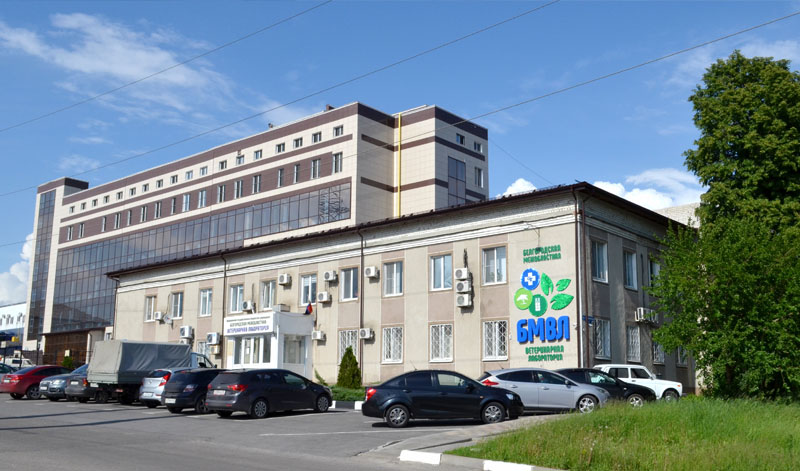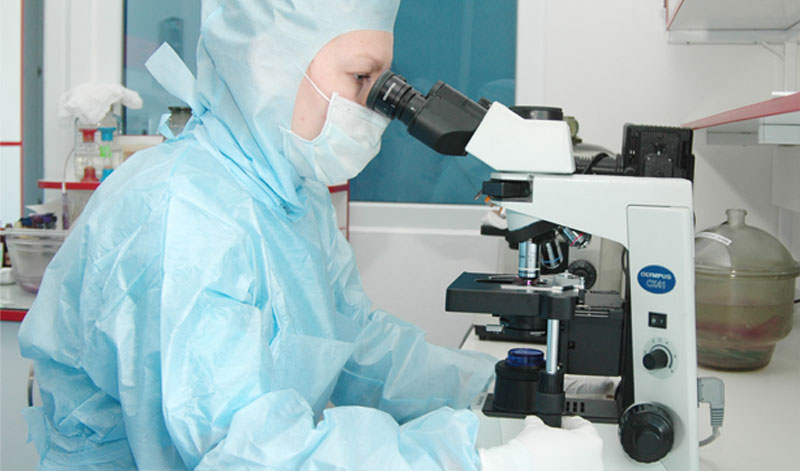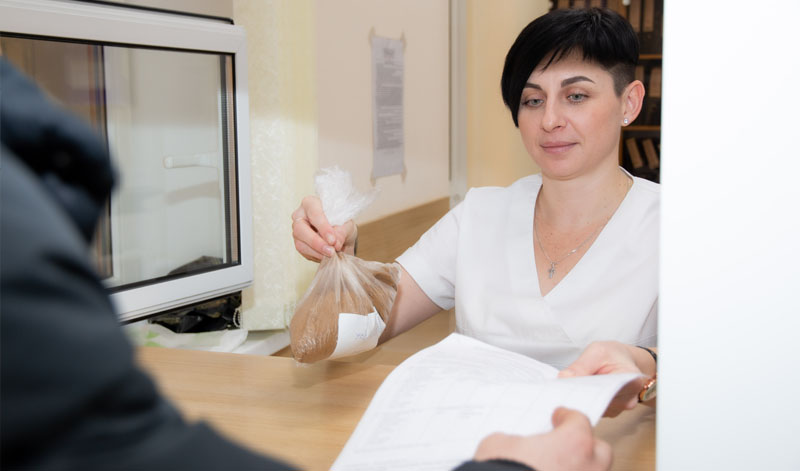Main areas of activity:
- Diagnostic studies of blood sera for bacterial, viral and parasitic diseases of farm animals and domestic unproductive animals;
- Laboratory studies for the diagnosis of cattle leukemia and clinical studies of blood of all species of animals and birds;
- Biochemical studies of blood and urine of all species of animals and birds to determine the immunobiological status of animals;
- Diagnostic studies of various biomaterials from all species of animals, birds, fish, bees for the presence of parasitic diseases;
- Laboratory studies of objects of the external environment: soil, manure, waste water for the presence of helminthosis pathogens, cysts of pathogenic intestinal protozoa, pupae of synanthropic flies;
- Monitoring of efficiency of deworming;
- Determination of the total toxicity of feed in order to assess its quality;
- Diagnosis of mycoses of all species of animals, birds, fish, bees.
IN THE DIAGNOSTIC DEPARTMENT:
- Serological studies using modern diagnostic kits, test systems based on:
- complement binding reactions;
- complement long-term binding reaction;
- agglutination reactions;
- microagglutination reaction;
- immunodiffusion reaction;
- diffusion precipitation reaction.
-
Biochemical studies using modern sets of reagents to determine the concentration of trace elements, enzymes, electrolytes in blood by spectrometric, photometric, titrometric methods.
- Hematological studies, including the calculation of white blood cells, red blood cells, the determination of the amount of hemoglobin, the rate of subsidence of red blood cells.
- Microscopic, coprological studies of biomaterial on parasitic diseases by modern methods of diagnostics of helminthoses, protozooses and arachnoentomoses.
- Biological, organoleptic and bacteriological studies of the quality of fodders by determining their toxicity by biotesting on protozoa, white mice and skin samples on rabbits. Isolation of microscopic fungi on nutrient media.
A modern laboratory research base is used to conduct diagnostic studies:
-
Hematological automatic analyzer;
- Biochemical automatic blood analyzer, urine analyzer;
- Binocular laboratory microscopes of various modifications;
- Projection trichinelloscope;
- Universal scanning spectrophotometer.
The Department phone: +7 (4722) 34-11-15

Marina Vladimirovna Sumchenko
education: Higher education
UNIVERSITY: Belgorod Agricultural Institute, 1988
Specialty: Veterinarian
contacts: (4722) 34-21-63
Белгородский филиал ФГБУ "ВНИИЗЖ"
32 Studencheskaya St., Belgorod; Phone/Fax: (4722) 25-09-52; e-mail: belmvl@fsvps.gov.ru
32 Studencheskaya St., Belgorod; Phone/Fax: (4722) 25-09-52; e-mail: belmvl@fsvps.gov.ru
 Language
Language Русский
Русский














